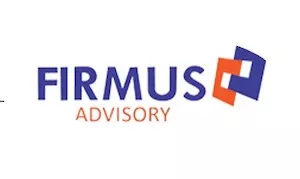Consumer Confusion and Trademark Registration.
My hairdresser made a simple but striking mistake that got me thinking. I gave her a specific hair product to use, one I trusted and found effective, and she quickly commented, "This product seems to have reduced in quality nowadays." Surprised, I asked what she meant, only to realize that she was referring to a completely different product from what I had handed her. She didn't bother to read the label or brand name; instead, she relied solely on appearance.
This situation shows a common problem in Ghana and other places, that is, how confusion among consumers can lead to mistakes about a product's quality, worth, or brand. It also highlights why protecting trademarks is so important in Ghana, where businesses must deal with issues like different literacy levels and brand imitation.
Illiteracy and Consumer Confusion in Ghana
In Ghana, the rate of illiteracy, though improving over the years, remains a challenge, especially in rural or marginalized communities. According to data from the Ghana Statistical Service, literacy rates vary significantly across the country. The literacy rate among the population six (6) years and older in nine (9) out of the sixteen (16) regions is below the national figure of 69.8%, with Greater Accra Region (87.9%) recording the highest and Savannah Region (32.8%) the lowest.
Many consumers may not have the reading skills to identify products properly, which can lead to mistakes, as seen with my hairdresser. When people can't read labels, they often rely on visual signs such as colours, packaging, and general appearances.
Human Imperfections and Product Confusion
Human imperfection also plays a role in product mistakes. Even in highly literate populations, consumers can be easily influenced by look-alike products on store shelves. Trademark infringement usually occurs when a person uses a mark which is similar to a registered trademark such that customers of the registered mark are likely to be confused or deceived.
Typically, an average consumer views a trademark as a whole, rather than breaking down its specific details or focusing solely on its distinctive aspects. This reflects the understanding that consumers may not have perfect recall when distinguishing between similar marks.
In simple terms, humans are naturally prone to error. Even when someone is literate and well-informed, mistakes can still happen. A small difference in packaging or a deceptive label can lead people to make the wrong choice. This is why distinct trademarks are so important—they act as a quick, recognizable signal that helps differentiate products, even for busy or distracted consumers.
The Importance of Trademarks in Ghana
Trademarks play a crucial role in protecting both businesses and consumers. They help people easily identify their preferred brands and distinguish between authentic and imitation products. In a market where counterfeiting and "look-alike" products exist, trademarks are a powerful tool for fighting consumer confusion and maintaining brand trust.
Trademarks Protect Businesses and Build Trust
When a business registers its trademark, it gains exclusive rights to use that brand or logo for its products and services. This protection ensures that no one else can legally imitate or use the mark without permission. For consumers, seeing a familiar trademark on a product gives confidence in its quality and origin.
Trademarks Reduce Counterfeiting
Counterfeit goods are a problem in many markets, including Ghana. When brands are protected with a registered trademark, it becomes easier to take legal action against counterfeiters. This not only protects the business but also helps consumers avoid poor-quality imitations that could be harmful or ineffective.
Trademarks Promote Fair Competition
By registering a trademark, businesses ensure that their unique products and services stand out. This promotes healthy competition and encourages businesses to maintain high-quality standards. Without trademark protection, businesses may face unfair competition from copycats who want to profit from other business' hard-earned reputation.
To view the article in full click here
The content of this article is intended to provide a general guide to the subject matter. Specialist advice should be sought about your specific circumstances.


